Data Sharing and Collaboration
Solutions that Facilitate Data Sharing
Interpreting genomic data often depends on previously discovered associations. Researchers need to share data with collaborators in the scientific community to advance the field. As genomic methods become more commonplace, Illumina offers an increasingly wide breadth of flexible and efficient tools for sharing data, accessing public databases, and formatting data for publications.
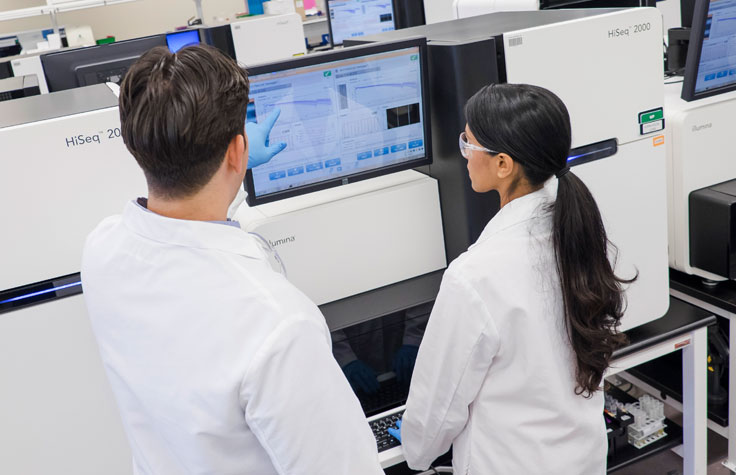
Preparing Data for Publication
Sequencing data has traditionally been difficult for non-bioinformatics experts to understand. Illumina solutions simplify this with intuitive report formats tailored to biologists, available in publication-ready formats.
With Illumina sequencing data analysis tools, researchers can select raw sequencing data and interface with numerous secondary analysis options. Selected workflows can be launched at the click of a button, and designed to output user-friendly reports. The file formats we provide make it easy to share with collaborators or with public databases.
A laboratory information management system (LIMS) can facilitate the management of samples flowing through the lab, and provide easy access to information from all phases of the workflow. Data can be extracted in various formats for downstream analysis, collaboration, and final reports.
With user-friendly software solutions, researchers can devote less effort converting data to results, and more time focusing on the next cycle of research.
Apps for Genome-Scale Analysis
BaseSpace Sequence Hub Apps simplify genome-scale data for four of the most commonly used biological applications. The apps can aggregate multisample reports, provide job completion notification on mobile devices, and enable efficient file organization for collaboration and sharing.
Read Data Sheet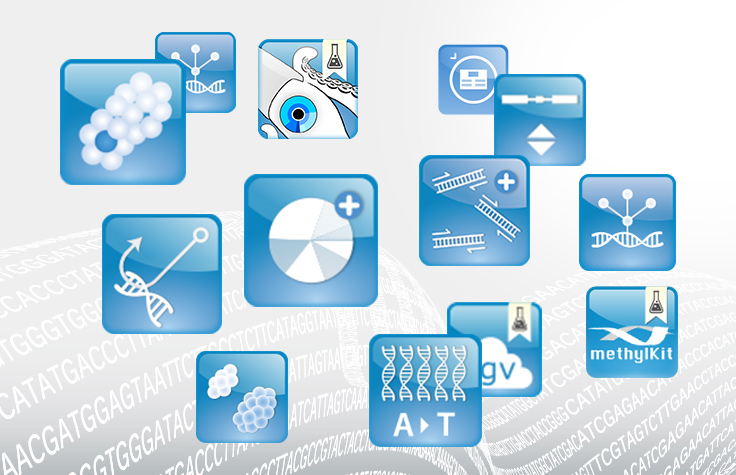
A LIMS Helps Labs Publish Faster
Faster, automated lab procedures lead to faster and more efficient experiments and more reliable results. And when reliable results are received quickly, research findings can be published sooner.
To enable publication, any informatics solution must be as good at helping scientists get data out of the system as it was at helping scientists get the data in. A LIMS maximizes instrument efficiency; automates critical data capture, quality control, and analysis pipelines; and keeps samples flowing through the lab while tracking associated data and keeping information easily accessible. It should also offer a variety of options for accessing stored data, from ad hoc searches to sophisticated reporting frameworks that can also be used to create custom queries and reports.
A robust API can also help scientists and internal programmers extract data into the format needed for downstream analysis. And once that analysis is complete, scientists can choose any number of ways to summarize and communicate results.
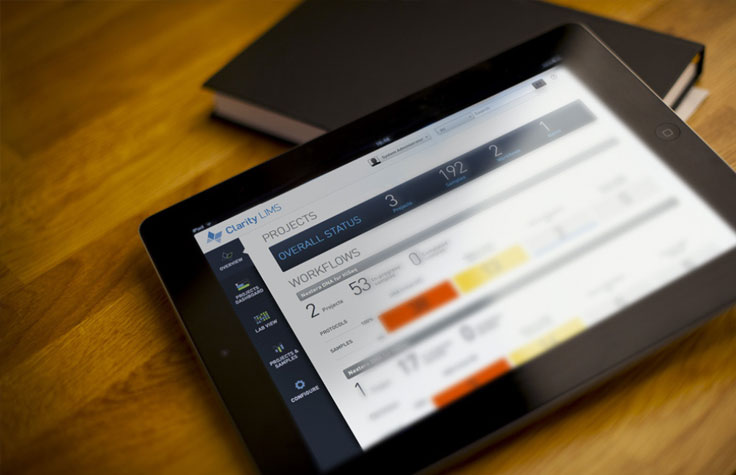
How Will You Collaborate?
Sharing large sets of data with collaborators has traditionally been an exercise in frustration, involving arcane FTP protocols, hard drive limits, and incompatible device interfaces.
With BaseSpace Sequence Hub, sharing data with trusted collaborators is as simple as clicking a button. Sharing is instantaneous and accessible everywhere. Data are never physically moved, because all invited collaborators are looking at the same data, not a copy of the data.
Individual sequencing runs or entire projects can be shared – the choice is yours. You maintain control of the shared data, and with whom it is shared. You can even transfer ownership of your data to others if desired. BaseSpace Sequence Hub gives you complete control.
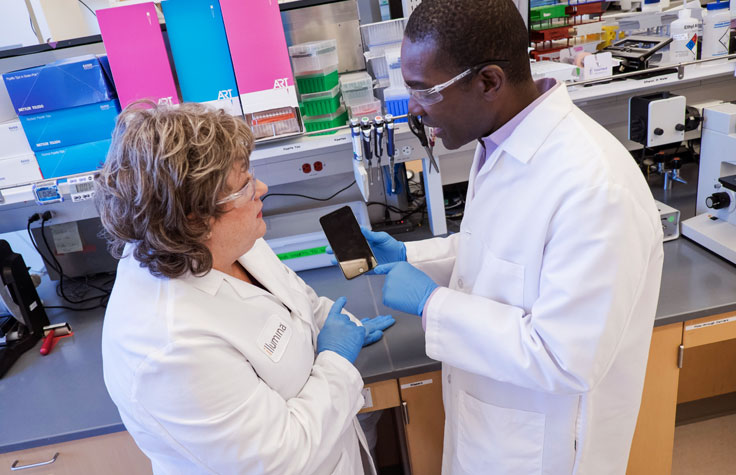
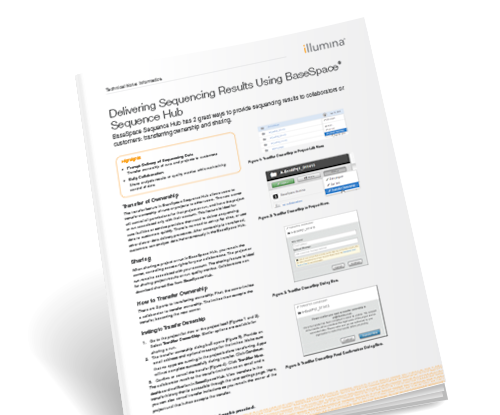
Sharing BaseSpace Sequence Hub Data
Two great ways to provide results to collaborators or customers: transferring ownership and sharing. Share sequencing data in just a few clicks.
Learn HowData Sharing and Collaboration Solutions
BaseSpace Sequence Hub
BaseSpace Sequence Hub is the Illumina cloud-based genomics computing environment for next-generation sequencing (NGS) data management and analysis. It fosters collaboration and innovation with simplified data sharing.
View ProductBaseSpace Clarity LIMS
BaseSpace Clarity LIMS is a laboratory information management system that helps laboratories track samples and optimize procedures and workflows. Lab managers can access real-time data from mobile devices to update stakeholders or collaborators.
View ProductInterested in receiving newsletters, case studies, and information on genomic analysis techniques? Enter your email address.
Additional Resources
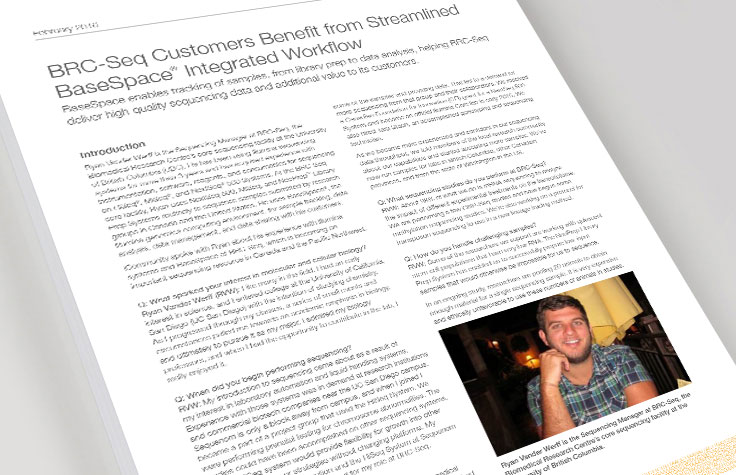
Core Sequencing Lab Benefits from BaseSpace Cloud
BRC-Seq uses BaseSpace for sample tracking as well as data analysis, management, and sharing.
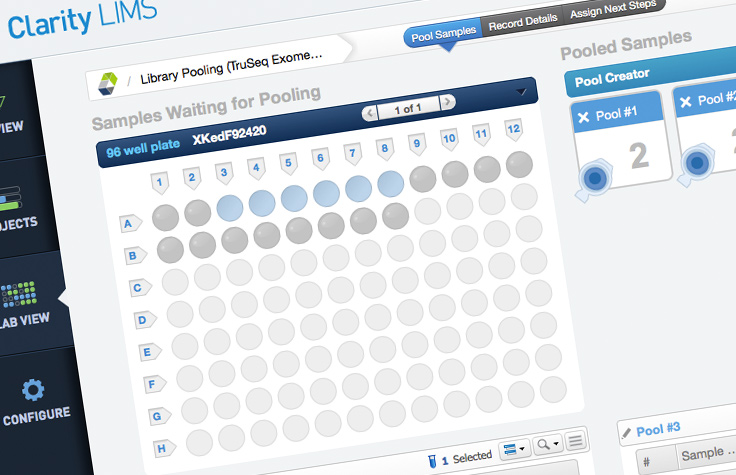
BaseSpace Clarity LIMS
BaseSpace Clarity LIMS offers intuitive lab management from bench to boardroom.